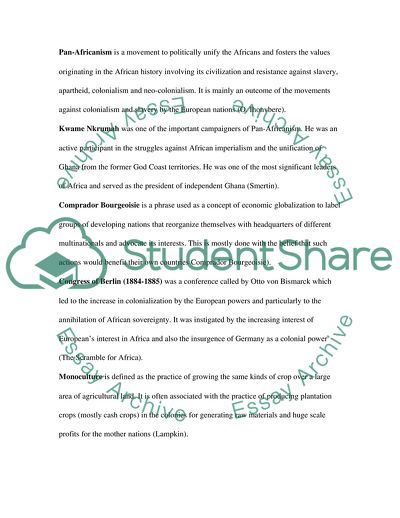Cite this document
(Third World, Economically Developing Nations and their Events Assignment Example | Topics and Well Written Essays - 2000 words, n.d.)
Third World, Economically Developing Nations and their Events Assignment Example | Topics and Well Written Essays - 2000 words. https://studentshare.org/politics/1733136-midterm-exam-third-world-class
Third World, Economically Developing Nations and their Events Assignment Example | Topics and Well Written Essays - 2000 words. https://studentshare.org/politics/1733136-midterm-exam-third-world-class
(Third World, Economically Developing Nations and Their Events Assignment Example | Topics and Well Written Essays - 2000 Words)
Third World, Economically Developing Nations and Their Events Assignment Example | Topics and Well Written Essays - 2000 Words. https://studentshare.org/politics/1733136-midterm-exam-third-world-class.
Third World, Economically Developing Nations and Their Events Assignment Example | Topics and Well Written Essays - 2000 Words. https://studentshare.org/politics/1733136-midterm-exam-third-world-class.
“Third World, Economically Developing Nations and Their Events Assignment Example | Topics and Well Written Essays - 2000 Words”. https://studentshare.org/politics/1733136-midterm-exam-third-world-class.


